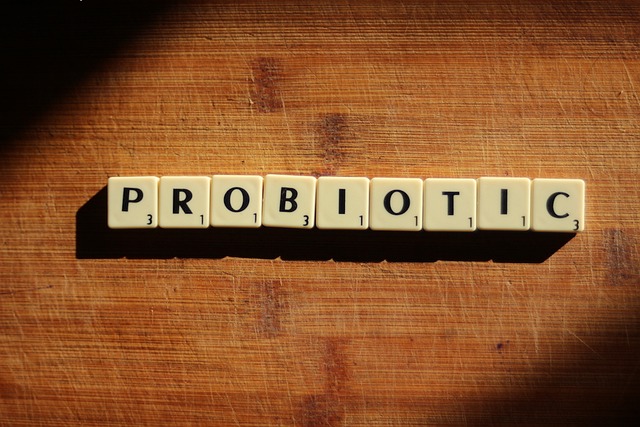
You might not know that your gut health and your weight are closely connected, and you might not know that our inability to lose weight or keep it off is due to gut health problems!
Approximately 10power of 14 bacteria and more than 1,000 species exist in the human gastrointestinal tract; together, these are known as the gut microbiota. The impact of the gut microbiome on health has been a major focus of interest for the past couple of decades. It is known that Gut dysbiosis (an imbalance of gut microbiota composition) due to dietary or environmental changes can promote overgrowth of pathogenic organisms that cause chronic inflammation, playing a major role in the pathology of chronic metabolic and intestinal diseases, obesity among them.
The gut, referred to as the ‘second brain’, is composed of trillions of microorganisms that directly affect the brain and brain signals, influencing stimulants for hunger and appetite.
Human microbial colonization commences at birth, and then progresses and modifies species colonization for 3 years until the microbiome grows into its adult form. The human microbiome is composed of 5 different families of microbiota (Bacteroidetes, Firmicutes, Actinobacteria, Proteobacteria, and Verrucomicrobiai, of which the Bacteroidetes and Firmicutes make up 90% of the species of bacteria.
The main physiological functions of the gut microbiome are digestion, vitamin synthesis, and metabolism. It has been reported that the gut microbiome increases energy production from food, provides low-grade inflammation, and impacts fatty acid tissue composition. These mechanisms may link the gut microbiome with obesity.
https://www.ncbi.nlm.nih.gov/pmc/articles/PMC7333005/
Probiotics, Prebiotics, & Synbiotics
Studies show that people who supplement their diet with probiotics, prebiotics, and synbiotics have better gut health. These additions alter the secretion of neurotransmitters, hormones, and inflammatory factors. The alterations prevent triggers that cause the body to absorb food in a way that prevents weight loss. What do these terms mean?
- Probiotics are live microorganisms that are intended to have health benefits when consumed or applied to the body
- Prebiotics are special plant fibers that help healthy bacteria grow in your gut. This makes your digestive system work better.
- Synbiotics are mixtures of probiotics (helpful gut bacteria) and prebiotics (non-digestible fibers that help these bacteria grow).

LIFESTYLE CHANGES to improve GUT HEALTH
Diet Changes
We know that eating the right foods for your individual metabolism and gut microbiome can benefit your health. Weight loss can occur as a byproduct without restricting how much you eat, and it’s more sustainable this way.
There are many different foods that you should include in your diet that are beneficial for your gut, especially those that are rich in prebiotics and probiotics. Here’s a short list:
- Garlic
- Onions
- Kombucha
- Fermented and pickled foods
- Yogurt and Kefir
- Oats
- Almonds
- Artichokes
- Sweet Potatoes
- Vegetables that feed your healthy bacteria: Leeks, Asparagus, Broccoli, Spinach
- Naturally sweet foods: Honey, Dark Chocolate, Coconut Flour
- Fruits like Apples, Berries, Bananas, Mango

What are the most important changes you can make starting today to improve the health of your gut? We definitely need to increase the beneficial bacteria while getting rid of the bad ones.
- Eat a diverse diet – avoid eating the same food routine.
- Eat organic and locally sourced foods – shop at farmer’s markets.
- Reduce red meat consumption – many meat brands raise their livestock using antibiotics – if you do like your steak make sure to add a nice serving of natural fiber sourced from vegetables with it!
- Avoid sugar and any processed foods.
- Avoid artificial sweeteners.
- Eat naturally fermented and pickled foods.
- Keep an eye on sugar levels in super healthy things like smoothies, nut butters, protein bars, salad dressings and yogurt!
- Supplement with probiotics daily first thing in the morning.
- Avoid undigested food in the gut by avoiding antacids – prescription or over the counter – we need the HCL in the stomach to break down the foods
- Eat plenty of natural fiber, and supplement if your digestion is slow and bowel movements are not regular.
- Avoid antibiotics – they are the number one and the worst enemy for our gut’s microbiome! They wipe out bad and healthy bacteria all in one sweep of just 2-3 days – discuss with a healthcare professional how and when to start a MEDICAL GRADE probiotic that will help repopulate your gut with healthy bacteria if antibiotics are necessary to resolve an infection.
REST and AVOID or MANAGE STRESS
Studies have shown that people with erratic sleep patterns run the risk of disrupting their microbiome. Many studies show the connection between STRESS and a leaky gut barrier, which leads to inflammation in the gut and in the body!
Say ‘no’ more often, manage your time better, avoid over-commitment, explore meditation, mindfulness, yoga, or taiQi. Establishing balance in your life will support your mental and emotional health and optimize your gut microbiome and your overall health.

EXERCISE REGULARLY and STAY ACTIVE!
Studies show that the microbiomes of physically active people are more healthy and diverse. Exercise burns fat, helps release toxins, improves circulation, de-stresses the mind. Find time for 30 minutes if fitness – it is worth it!
SUPPLEMENTS
Aside from probiotics, there are other supplements that can help heal your gut and carry weight loss claims. But do they really work and are they good for you?
L-Glutamine is an amino acid — one of the building blocks of protein — that has been connected to improved gut health. It’s found naturally in foods like tofu, fish, lentils, and beans, and has also been reported in some studies to reduce obesity and body fat.
Collagen accounts for one-third of the total protein in your body. You can get it from egg whites and bone broth, but the collagen from food or pills is not the same as the collagen that your body makes itself. A small number of studies have linked collagen to a healthier intestinal lining and lower body fat. However, the research so far was conducted in cells and animal models. It’s not clear if the same would hold true in humans.
Immunoglobulins are one of the major immune-fighting molecules found everywhere in the body. Most people refer to them as antibodies. There are five distinct types of immunoglobulins; IgA, IgD, IgE, IgG, and IgM. Each type of immunoglobulin is designed to target different potential threats. IgG is the most abundant of all five, and it primarily helps to protect against bacterial and viral infections.
Using an oral IgG-based supplement will help with something called passive immunity. IgG supplements will deliver IgG directly to your gut. The IgG will bind with toxins and make them too big to be absorbed through the gut. The immunoglobulins can bind to things like LPS, E. coli, C. diff., and many other detrimental toxins. Oral supplemental immunoglobulins will not bind with your unique immune cells to initiate an inflammatory/immune response. As a result, your body will be able to expend more energy rebuilding your gut lining and the mucosal barrier. Oral immunoglobulins have shown great improvements in patients with IBS/IBD.
WEIGHT LOSS Supplements? To take or not to take?
There are many pills and supplements that claim to be miracle workers for weight loss. But there’s limited scientific evidence to suggest they can improve your gut health or help you reach a moderate weight in a safe, healthy way. Please avoid them – I have listed a few below:
- Green tea extract
- Garcinia cambogia
- Caffeine
- Green coffee bean extract
- Bitter orange
- Raspberry ketones
- 7 keto DHEA
- Forskolin
- Ephedra
- Chromium
- CLA Conjugated Linoleic acid
- Glucommanan
How long should we maintain healthy eating habits and a healthy lifestyle before we achieve a healthy microbiome?
There are no quick fixes or miracle cures that reverse damage to your gut lining! The most common mistake people make is not sticking with the protocol that helped them improve and feel better for long enough, they relapse and after a few times of doing that, they just give up thinking they are beyond help.
To build a healthy microbiome you might need 6 months or more after healthy habits are implemented, however it is a lifelong journey because you need to maintain all these habits to keep your gut health. Don’t give up after you feel better! If you do you should talk to a healthcare professional regarding the factors that make you relapse, address them and then start again.
Conclusion
There is much more to be said and this is a huge topic – much is still unknown regarding how our gut health affects our weight gain and ability to lose weight. Still, it is very clear that improved gut health improves our overall health and greatly aids in sustainable weight loss.


